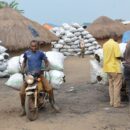Kenya: A radical proposal to deal with our prejudices
This article is part of a debate organized by Oxford Transitional Justice Research (OTJR) in collaboration with Moi University (Eldoret) and Pambazuka News. A selection of essays based on this debate will be published in an edited volume by Fahamu Books. For PDF documents of the debate please go to www.csls.ox.ac.uk/otjr.php.
The truth about the beliefs and perceptions of the majority of Kenyans is not to be found in erudite forums and debates such as this one. To really understand the Kenyan mind, one needs to visit the marketplaces and the pubs in ethnically homogenous regions of this beautiful country. A recurring theme in many marketplace and bar-room debates is the need for “˜foreigners’ who have settled in other people’s “˜territory’ to learn to respect the “˜indigenous’ people. In this view, the “˜foreigners’ must not compete for political power with the “˜locals’, and whenever a national issue requires a vote, they must vote with the “˜host’ community or face dire consequences. Below, I suggest a radical measure to deal comprehensively and transparently with the hidden and overt prejudices that fan periodic eruptions of “˜political violence’ in Kenya.
Views expressing a preference for ethnic homogeneity may be forgiven if expressed only by ignorant village folk. Unfortunately these views are held by individuals who are expected to be opinion leaders in their communities, and actively reinforced by the most educated and urbanized Kenyans. It must also be noted that this is view prevails not just in the Rift Valley, but across the entire country. Sayings such as “˜blood is thicker than water’ have taken on new meanings, often suggesting exclusion of ethnic others and the promotion of narrow supposedly ethnic interests that often benefit only a few (mostly) political elite. This reality raises fundamental questions about the honesty behind public protestations of patriotism and Kenyanness, particularly when many proponents of these divisive perspectives are received as heroes in their communities.
Taken to its logical conclusion, this thinking seems to suggest that what needs to be done to rid this country of the periodic orgies of bloodshed associated with electioneering and politics would necessarily include radical legislative measures.
If Kenyans prefer ethnic homogeneity, then a law should be urgently enacted in parliament barring anyone whose ethnic origin cannot be traced to a particular area from vying for a post in that location. Everybody should be compelled to contest electoral posts only in the areas from which they can trace their ancestry. Thus, all elected leaders in Central Province will only be Kikuyu, in Western, Luhya, in North Eastern, Somali, and so on. As to what to do with relatively de-ethicized urban centers like Nairobi, this question would be left to the proponents of this ethnocentric thinking to resolve as they partition the country into “˜comfortable’ ethnically homogenous zones. Such a law would protect innocent voters from the ambitions of foolish Kenyans who still hold that democracy means that one can contest a post anywhere, every vote counts, and that the winner is decided by the vote. As this is indeed the current practice in most of this country, such legislation would only be formalizing what many Kenyans think is the best approach.
Indeed, the law should go further and enact a form of governance that does not require people to vote directly for the national leadership, because this is another area of contention. When the so-called foreigners vote for a candidate of their choice who happens not to be the favorite of their “˜hosts’, it often results in animosity and chaos. Therefore, legislation that ensures that a president or prime minister is elected or selected far away from the voter would safe-guard the poor citizens who go into polling booths thinking that their vote is truly free of coercion and strikes a blow for democracy.
These suggestions are not just the idle musings of a disturbed mind. They are informed by opinions and activities that have taken root on the ground. The country has already been secretly zoned into tribal enclaves, and the enclaves have identified their champions and leaders who are busy fighting for their “˜rights’. Indeed, at every constitutional review attempt over the last fifteen years, intelligent debate on devolution has been contaminated by a pedestrian definition of majimbo whose very thrust has been “˜our region for our people’, and assertions that “˜outsiders’ must go back to their “˜home’ areas.
Pretending that a different course is possible would be a waste of valuable national time that could be spent more productively pursuing real development and change in the lives of individual citizens. A solution such as that proposed above would go a long way in eliminating the use of elections and politics as an excuse for murders and rapes that has been deployed since the advent of multi-partyism.
Legalization of our secret prejudices would thus expose the criminals among us who take advantage of politics and elections to commit heinous crimes that are then labeled “˜political violence’ and left unpunished. In one fell swoop, we would have addressed the twin issues of violence and impunity, and hopefully Kenyans would become more honest in their speech and intentions.
Finally, this move would expose the true nature of the Kenyan Republic, and invite those like myself who disagree with this sort of arrangement to actively seek another place to call home.
Attempting to deal with this ogre of ethno-political balkanization in conventional ways of exhorting patriotism and nationalism will only end in more loss of life and property, since the citizens would remain deluded that they can practice their freedoms of association and assembly anywhere in this land.
*Dr Lukoye Atwoli is a Consultant Psychiatrist and Lecturer at Moi University School of Medicine www.lukoyeatwoli.com






The article is – evidently – mistitled by the author or more likely by the editrix. It should be called “A Modest Proposal…”, in honour and admission of its obvious and glorious lineage.
A modest proposal, surely?
The contribution helpfully caricatures the complex question of ethnicity in Kenyan politics. However, a solution based on finding ways to dull the potency of “political ethnicity†is largely based on the assumption that the violence was initiated and sustained by “evil†elites who used “innocent†co-ethnics for selfish ends. In this view, the masses are manipulated to take part in a struggle (for ethnic domination) whose fruits accrue only to the elites. Macharia Gaitho summarized this aspect of problem as follows in his column in the Daily Nation of 24 August 2009:
The problem is leaders who exploit their own ethnic groups for personal advantage. Another problem is foolish people who think that they stand to benefit, individually and collectively, if one of their own ascends to power….We give our leaders power to plunder the nation under the foolish belief that it our turn, as a community, to eat. But the fact is that the eating is usually limited to the First Family, along with a few relatives, fixers and hatchet-men who help in the looting and plunder.
Is this the whole story? Can we assume that the average Kenyan a blameless pawn in a political game, lacking agency, and grossly misinformed about the extent to which they (or the non-elite “otherâ€) benefit from elite politics? Or is the average Kenyan an active participant in the violent social relations Branch termed as “normalised violence†earlier in this collection? Do we have good evidence – say population surveys on motivations and attitudes of perpetrators of violence from different ethnic groups – to support these different positions? These assumptions are important to interrogate because they form the basis upon which solutions are suggested, and others have said elsewhere (see Waweru on incompatibility of reform and accountability) misdiagnosis of the problem can yield inadequate or even counterproductive solutions.